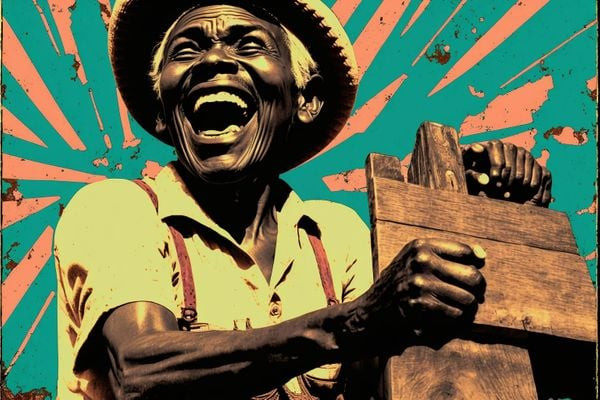Tourism linkages and leakages significantly impact local economies. SIXT.VN is here to guide you through understanding and minimizing negative impacts while maximizing benefits for your destination, especially when exploring Vietnam. We help you discover how to make your travels more sustainable and beneficial for local communities.
1. What Are Linkages And Leakages In Tourism?
Linkages in tourism refer to the connections between tourism businesses and other sectors within a local economy, whereas Leakages in tourism refer to the revenue generated by tourism that leaves the destination’s economy, failing to benefit local communities.
- Tourism Linkages: These are the relationships and interdependencies between tourism businesses (hotels, restaurants, tour operators) and other sectors of the local economy. Effective linkages ensure that tourism revenue circulates within the destination, supporting local suppliers, businesses, and communities. According to the United Nations Environment Programme (UNEP), strong linkages are essential for sustainable tourism development, as they maximize the economic benefits for host communities.
- Tourism Leakages: This refers to the economic value that “leaks” out of the destination’s economy. This can occur when tourists spend money on foreign-owned businesses, imported goods and services, or when profits are repatriated to other countries. The World Tourism Organization (UNWTO) highlights that leakages can significantly reduce the positive impact of tourism on local economies, especially in developing countries.
2. Why Are Linkages and Leakages Important in Tourism?
Understanding linkages and leakages is essential for maximizing the positive economic, social, and environmental impacts of tourism. Linkages ensure local communities benefit directly from tourism revenue. Leakages, on the other hand, diminish these benefits and can lead to economic disparities.
- Economic Impact: Strong linkages lead to increased local employment, business opportunities, and income generation. Minimizing leakages ensures that a greater portion of tourism revenue remains within the local economy, fostering sustainable economic growth.
- Social Impact: Effective linkages support community development, cultural preservation, and improved living standards. Reduced leakages mean more resources are available for local infrastructure, education, and healthcare.
- Environmental Impact: Linkages can promote sustainable practices by encouraging tourism businesses to source local, eco-friendly products and services. Minimizing leakages can reduce the demand for imported goods, lowering the carbon footprint of tourism.
3. What Are the Different Types of Tourism Leakages?
There are several types of tourism leakages, each affecting local economies differently:
- Import Leakage: This occurs when tourism businesses import goods and services from outside the destination, rather than sourcing them locally.
According to a report by the UNWTO, import leakages can account for a significant portion of tourism revenue lost in developing countries. For instance, hotels may import food, beverages, and amenities instead of purchasing them from local suppliers.
- Profit Leakage: This happens when foreign-owned tourism businesses repatriate profits to their home countries, rather than reinvesting them in the local economy. This reduces the amount of money available for local development and job creation. Research from the International Monetary Fund (IMF) indicates that profit leakages can be substantial in destinations with a high concentration of foreign-owned tourism enterprises.
- Employment Leakage: This occurs when tourism businesses employ foreign workers instead of hiring local residents. This reduces employment opportunities for local communities and can lead to social tensions. A study by the International Labour Organization (ILO) found that employment leakages are often prevalent in destinations where there is a perceived skills gap or a lack of qualified local workers.
- Infrastructure Leakage: This refers to the costs associated with developing and maintaining infrastructure to support tourism, such as airports, roads, and utilities. If these costs are not offset by tourism revenue, they can strain local resources and infrastructure. According to the World Bank, infrastructure leakages can be particularly challenging for small island developing states (SIDS) that rely heavily on tourism.
4. What Factors Contribute to Tourism Leakages?
Several factors contribute to tourism leakages, including:
- Foreign Ownership: The presence of foreign-owned tourism businesses, such as hotels, resorts, and tour operators, can increase leakages, as profits are often repatriated to their home countries. A 2018 study by the United Nations Conference on Trade and Development (UNCTAD) found that foreign direct investment in tourism can lead to higher leakages if not managed effectively.
- Import Dependence: Destinations that rely heavily on imported goods and services to cater to tourists experience higher leakages. This is often due to a lack of local production capacity or quality standards. Research from the Food and Agriculture Organization (FAO) indicates that import dependence in tourism can undermine local agricultural sectors and increase food insecurity.
- Weak Local Supply Chains: Inadequate linkages between tourism businesses and local suppliers can limit the flow of revenue within the local economy. This can be due to a lack of information, trust, or capacity among local suppliers. A report by the Overseas Development Institute (ODI) highlights that strengthening local supply chains is crucial for reducing leakages and promoting inclusive tourism.
- Lack of Regulation: Insufficient government regulation and oversight of the tourism sector can allow leakages to go unchecked. This includes weak enforcement of labor laws, tax policies, and environmental standards. The United Nations Economic and Social Commission for Asia and the Pacific (ESCAP) emphasizes that effective regulation is essential for ensuring that tourism benefits local communities and the environment.
5. How Can Tourism Linkages Be Strengthened?
Strengthening tourism linkages involves creating and nurturing connections between tourism businesses and local communities. Here are some strategies:
- Support Local Businesses: Encourage tourists and tourism operators to purchase goods and services from local businesses. This can be achieved through promotional campaigns, incentives, and partnerships.
- Develop Local Supply Chains: Help local suppliers meet the quality and quantity requirements of tourism businesses. This can involve providing training, technical assistance, and access to finance. The International Trade Centre (ITC) offers various programs to support the development of competitive local supply chains in tourism.
- Promote Community-Based Tourism: Support tourism initiatives that are owned and managed by local communities. This ensures that a greater portion of tourism revenue stays within the community and benefits local residents directly. The Global Sustainable Tourism Council (GSTC) provides resources and certification programs for community-based tourism enterprises.
- Invest in Local Infrastructure: Improve local infrastructure, such as roads, utilities, and communication networks, to support tourism development and enhance the competitiveness of local businesses. The Asian Development Bank (ADB) provides funding and technical assistance for infrastructure projects in developing countries, including those related to tourism.
- Foster Collaboration: Encourage collaboration between tourism businesses, local communities, government agencies, and non-profit organizations to develop and implement sustainable tourism strategies. The Tourism Concern advocates for collaborative approaches to tourism development that prioritize the rights and needs of local communities.
6. What Are the Benefits of Strengthening Tourism Linkages?
Strengthening tourism linkages can yield numerous benefits:
- Increased Local Income: By sourcing goods and services locally, tourism businesses can generate more income for local residents and businesses. This leads to improved living standards and reduced poverty.
- Job Creation: Strong linkages can create new employment opportunities in various sectors, such as agriculture, manufacturing, and services. This can help reduce unemployment and improve the economic prospects of local communities.
- Economic Diversification: Tourism can help diversify local economies by creating new markets for local products and services. This reduces dependence on traditional industries and makes the economy more resilient to external shocks.
- Cultural Preservation: By promoting local products, traditions, and heritage, tourism can help preserve local cultures and identities. This can enhance the authenticity of the tourism experience and attract more visitors.
- Environmental Sustainability: Linkages can promote sustainable practices by encouraging tourism businesses to adopt eco-friendly technologies and source local, sustainable products. This reduces the environmental impact of tourism and helps protect natural resources.
7. What Strategies Can Reduce Tourism Leakages?
Minimizing tourism leakages requires a multi-faceted approach:
- Prioritize Local Procurement: Encourage tourism businesses to prioritize sourcing goods and services from local suppliers whenever possible. This can be achieved through incentives, training, and certification programs.
- Promote Local Ownership: Support local entrepreneurs and businesses in the tourism sector. This can involve providing access to finance, training, and mentorship programs. The Aspen Network of Development Entrepreneurs (ANDE) offers resources and support for small and growing businesses in the tourism sector.
- Negotiate Fair Agreements: Ensure that agreements with foreign investors include provisions for local employment, training, and technology transfer. This can help maximize the benefits for local communities and reduce leakages. The Transparency International provides resources and guidance on negotiating fair and transparent agreements with foreign investors.
- Implement Effective Taxation: Implement effective tax policies to ensure that tourism businesses contribute their fair share to local revenues. This can involve levying taxes on tourism activities, such as hotel stays, tours, and attractions, and using these revenues to fund local development initiatives. The International Centre for Tax and Development (ICTD) conducts research and provides policy advice on taxation in developing countries.
- Monitor and Evaluate: Regularly monitor and evaluate the economic impacts of tourism to identify leakages and assess the effectiveness of mitigation strategies. This can involve collecting data on tourism spending, employment, and local supply chains. The Sustainable Travel International offers resources and tools for monitoring and evaluating the sustainability of tourism destinations.
8. How Can Tourists Contribute to Minimizing Leakages?
Tourists can play a significant role in minimizing leakages:
- Choose Local Accommodations: Opt for locally-owned hotels, guesthouses, and homestays instead of large, international chains.
- Eat at Local Restaurants: Dine at local restaurants and cafes that serve traditional cuisine made with local ingredients.
- Shop at Local Markets: Purchase souvenirs and handicrafts from local markets and artisans, rather than from foreign-owned stores.
 Woman selecting handicrafts at a local market in Vietnam
Woman selecting handicrafts at a local market in Vietnam
Authentic Vietnamese products being sold by a local vendor at a bustling market.
- Hire Local Guides: Engage local guides and tour operators who can provide authentic experiences and support local communities.
- Respect Local Culture: Respect local customs, traditions, and the environment by following responsible tourism practices.
9. What Are Some Examples of Successful Tourism Linkages?
There are numerous examples of successful tourism linkages around the world:
- Costa Rica: Costa Rica has developed strong linkages between tourism and agriculture, with many hotels and restaurants sourcing produce from local farmers. This has helped to increase local incomes, reduce import dependence, and promote sustainable farming practices. According to the Costa Rican Tourism Board (ICT), sustainable tourism practices have contributed to the country’s reputation as a leading eco-tourism destination.
- Bhutan: Bhutan’s high-value, low-impact tourism policy prioritizes local ownership and cultural preservation. The government requires tourists to use local tour operators and accommodations, ensuring that tourism revenue benefits local communities directly. The Tourism Council of Bhutan (TCB) emphasizes that this policy has helped to preserve the country’s unique culture and environment while generating sustainable economic benefits.
 Bhutanese local guiding tourists through scenic mountain trails
Bhutanese local guiding tourists through scenic mountain trails
Local tour guide dressed in traditional Bhutanese attire leading a group of tourists on a mountain trek.
- Jamaica: Jamaica has implemented various initiatives to strengthen linkages between tourism and local businesses, including training programs for local suppliers and incentives for hotels to source locally. The Jamaica Tourist Board (JTB) reports that these initiatives have helped to increase local employment and reduce leakages in the tourism sector.
10. How Does SIXT.VN Support Sustainable Tourism in Vietnam?
SIXT.VN is committed to promoting sustainable tourism in Vietnam by supporting local businesses and minimizing leakages. We offer a range of services that help tourists connect with local communities and experience the authentic culture of Vietnam:
- Local Accommodation Options: We partner with locally-owned hotels and guesthouses in Hanoi and other destinations in Vietnam to provide tourists with authentic and sustainable accommodation options.
- Local Tour Guides: We work with local tour guides who are passionate about sharing their knowledge and culture with visitors. Our guides are trained to promote responsible tourism practices and support local communities.
 Vietnamese tour guide showing Hanoi ancient temple
Vietnamese tour guide showing Hanoi ancient temple
A Vietnamese tour guide in traditional clothing explaining the history of a local temple to tourists.
- Local Transportation Services: We provide transportation services using local drivers and vehicles, ensuring that transportation revenue stays within the local economy.
- Sustainable Tourism Packages: We offer sustainable tourism packages that include visits to local communities, eco-friendly accommodations, and responsible tourism activities.
By choosing SIXT.VN, you can be confident that your travels in Vietnam will have a positive impact on local communities and the environment.
Frequently Asked Questions (FAQs) About Tourism Linkages and Leakages
-
What is the primary difference between tourism linkages and leakages?
Tourism linkages are connections between tourism businesses and local economies. Leakages are when tourism revenue leaves the local economy.
-
Why is it important to understand tourism linkages and leakages?
Understanding these concepts helps maximize the positive impact of tourism on local communities while minimizing negative economic effects.
-
What are the main types of tourism leakages?
The main types include import leakage, profit leakage, employment leakage, and infrastructure leakage.
-
How does foreign ownership contribute to tourism leakages?
Foreign-owned businesses often repatriate profits to their home countries, reducing the money circulating within the local economy.
-
What strategies can strengthen tourism linkages?
Strategies include supporting local businesses, developing local supply chains, and promoting community-based tourism.
-
How can tourists help minimize tourism leakages?
Tourists can choose local accommodations, eat at local restaurants, and shop at local markets.
-
What are the benefits of strengthening tourism linkages?
Benefits include increased local income, job creation, economic diversification, cultural preservation, and environmental sustainability.
-
Can you provide an example of a country with successful tourism linkages?
Costa Rica is a good example, with strong linkages between tourism and agriculture.
-
How does SIXT.VN promote sustainable tourism in Vietnam?
SIXT.VN supports local accommodations, local tour guides, and provides local transportation services to ensure tourism revenue stays within the community.
-
What can be done to encourage tourism businesses to prioritize local procurement?
Incentives, training programs, and certification programs can encourage tourism businesses to prioritize sourcing goods and services locally.
Ready to explore Vietnam in a way that benefits local communities and preserves its natural beauty? Contact SIXT.VN today to learn more about our sustainable tourism packages and services. Visit our website or call +84 986 244 358 to start planning your unforgettable and responsible journey. Address: 260 Cau Giay, Hanoi, Vietnam.



